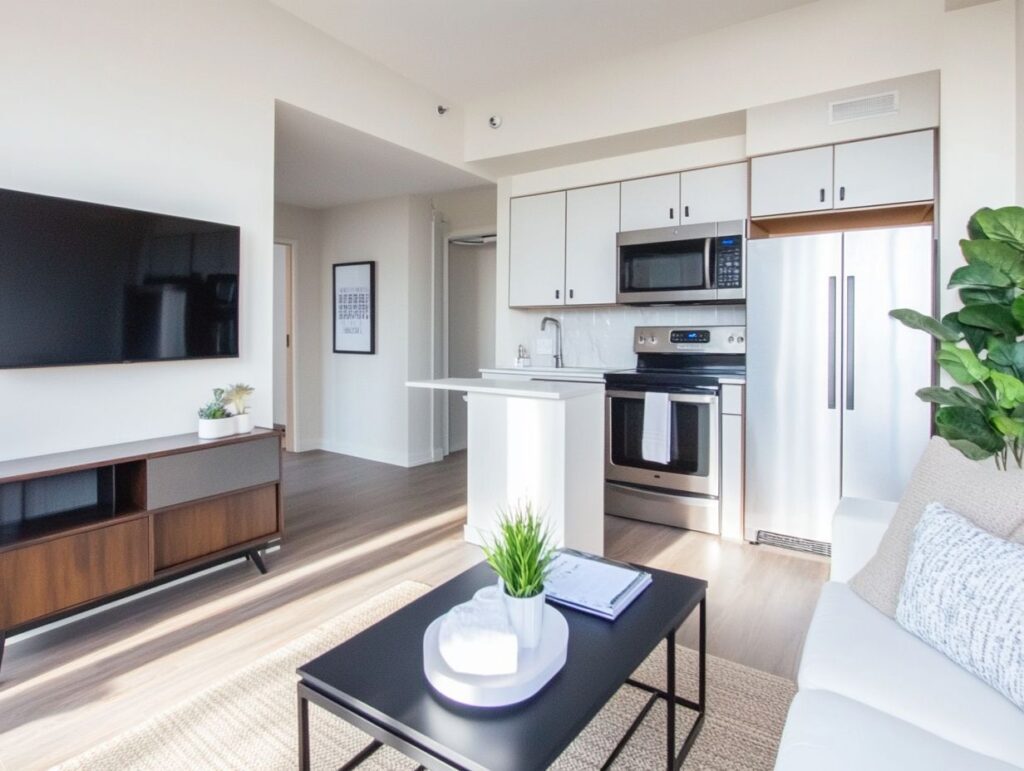Many tenants face the daunting prospect of losing their security deposit due to cleaning issues when moving out of a rental property. Understanding the common causes of these losses is crucial for a smooth transition.
We provide practical tips for avoiding cleaning-related disputes, effective cleaning techniques, and the importance of communication with your landlord. We also cover how to document the property’s condition and negotiate your deposit refund successfully, ensuring you leave with your hard-earned money intact.

Minimising The Risk of Deposit Loss over Cleaning Issues
Understanding deposit loss due to cleaning issues is critical for landlords and tenants if you want a smooth transition when a tenancy agreement ends. Many tenants might not realise that not meeting cleaning standards during move-out can put their security deposit at risk.
Landlords usually include specific conditions in the tenancy agreement that detail cleanliness expectations and any differences can spark disputes or even lead to cleaning charges. Knowing your property maintenance responsibilities and having a solid cleaning checklist are essential to avoid those annoying deposit disputes.
Common Causes of Deposit Loss
Common causes of losing your deposit often arise from damages and not meeting cleaning requirements when your tenancy ends. Landlords typically carry out a property inspection based on the condition report, and if your living space is not in pristine condition, they may charge you cleaning fees. Understanding these factors can help you avoid unnecessary financial losses and underscores the importance of knowing the cleaning policies outlined in your rental agreement.
The legal obligations regarding deposit retention are extremely important in these scenarios. For instance, if you neglect basic cleaning tasks or cause significant wear and tear, you could be held responsible for not meeting the minimum standards that the landlord expects. These standards are often detailed in your tenancy agreement and can assist you in maintaining the property in good condition.
Furthermore, regular inspections keep you and the landlord informed about the property’s condition, reinforcing the idea that consistent upkeep and attention to cleaning can significantly enhance your chances of receiving that full deposit back.
Tips for Avoiding Cleaning Issues
As you prepare to move out, follow some practical tips to avoid cleaning issues that might cost you your tenancy deposit.
First, review your tenancy agreement to understand your cleaning responsibilities. Then, do a thorough final walkthrough of your flat. This step helps ensure you meet all the cleanliness criteria and sets you up for a smoother return of your deposit.
You can avoid potential cleaning disputes by being proactive and knowing what is expected of you as a tenant.
Preventive Measures and Best Practices
Implementing preventive measures and best practices can reduce the chances of cleaning disputes when you conclude your tenancy. Creating a detailed cleaning checklist that outlines essential tasks and ensuring you have the right cleaning supplies will help you keep everything up to standard.
Think of this checklist as your roadmap, guiding you through all the areas that need attention—whether deep cleaning carpets, scrubbing bathrooms, or dusting those hard-to-reach corners. By adhering to this guide, you’re keeping the property in excellent condition and boosting your chances of passing any inspection processes. Hiring professional cleaning services might be the way forward if all this feels too much.
These professionals come equipped with specialised tools and a wealth of experience, ensuring every little nook and cranny gets the attention it deserves. Moreover, their documentation can be invaluable proof of all your cleaning efforts—significant for securing that full deposit back.
Effective Cleaning Techniques
Effective cleaning techniques are essential for achieving a tidy home and meeting cleanliness standards during your move-out cleaning. Deep cleaning your rental property means tackling every corner, which is crucial for passing your final inspection.
By understanding the cleaning expectations outlined in your tenancy agreement, you can prioritise tasks and streamline your cleaning process, setting yourself up for a successful return of your security deposit.
Tools and Products for Efficient Cleaning
When preparing your rental property for inspection, having the right tools and products for efficient cleaning makes a difference. Using the appropriate cleaning supplies allows you to keep the property in the condition your landlord expects. It’s a good idea to check any cleaning agreements you made at the start of your tenancy to ensure you have all the necessary supplies to meet those cleaning requirements.
Choosing quality cleaning products helps you achieve a spotless environment and demonstrates your commitment to maintaining the home according to the standards in your tenancy agreement. This can be essential in preventing any disputes over your security deposit when your tenancy ends.
Using the right tools means you’ll be able to tackle even those hard-to-reach areas, providing you with a thorough approach to cleanliness. This proactive effort helps foster a positive relationship with your landlord while protecting the property’s overall condition and value.

Communication with the Landlord or Property Manager
Open and effective communication with your landlord or property manager is crucial when addressing cleaning concerns during your tenancy. By discussing their requirements and your tenancy agreements, you can clarify expectations regarding cleaning and maintenance.
Getting on the same page early helps prevent potential issues before they escalate into deposit disputes.
How to Address Cleaning Concerns
Knowing your tenant rights and expressing your expectations effectively is crucial when addressing cleaning issues with your landlord. Sharing evidence, such as photos or receipts from professional cleaners, can strengthen your case during discussions. Preparing for potential mediation can also help you and your landlord reach a fair agreement about the property’s condition.
To make your conversation more productive, clearly state your concerns and use specific examples to illustrate your problems. Maintaining a calm and respectful tone is essential; it helps create a positive atmosphere for negotiation.
Consider proposing solutions and reasonable timelines for rectifying the cleaning issues, as this can encourage a collaborative approach. It’s also prudent to document every interaction—emails, texts, or letters exchanged—because this can provide valuable evidence if matters become tense.
This thorough documentation demonstrates your commitment to amicably resolving the issue and safeguards your interests if formal dispute resolution is necessary.
Documenting the State of the Property
Documenting the state of your rental property before and after your tenancy is critical to protecting your deposit. Take some before and after photos to record the place’s appearance visually. This provides solid evidence of the property’s condition and helps demonstrate that you’ve cleaned up, which can be helpful during your final property assessment.
Furthermore, this documentation can assist you in meeting the cleaning requirements in your tenancy agreement and resolve any potential disputes.
Importance of Before and After Photos
You can’t underestimate the importance of before-and-after photos in showcasing the cleanliness of your rental property.
These images are vital for making the final inspection process go smoothly. They demonstrate your efforts to restore the space to its original condition. They’re a lifesaver for landlords and tenants, serving as solid proof to help resolve any possible disagreements.
By taking a photo of the property before you clean and then another to highlight the sparkling results afterwards, you can truly show that you met or exceeded the cleaning standards specified in the tenancy agreement. This thorough documentation supports your case for getting your full security deposit back and builds trust between you and the landlord, making for a much more positive rental experience overall.
Negotiating Deposit Refunds
Negotiating deposit refunds can feel overwhelming, but understanding the process can help you reclaim your money fairly.
First, take some time to understand any cleaning fees that might be deducted. Based on what is outlined in your tenancy agreement, you can approach the negotiation with a focus on fairness.
Knowing your rights regarding deposit retention policies can give you the confidence you need during these discussions and could lead to a better outcome for you.
Tips for a Successful Negotiation
To successfully negotiate your deposit refund, you must clarify cleaning expectations and keep those communication skills sharp. Approach your discussion with the landlord with knowledge of your tenancy agreements and any relevant cleaning documentation. Effective dispute resolution often refers to clear and respectful communication, so highlight your efforts to meet your obligations.
Start by reviewing the check-in checklist and any photos you took when you moved in; these can be great evidence of the property’s condition. When you present your case, use specific examples to emphasise how you’ve met the cleaning requirements and any extra steps you took to leave the place in tip-top shape.
Keeping a calm demeanour during negotiations helps create a more productive atmosphere. Emphasizing your commitment to professionalism in these discussions can strengthen your position and boost your chances of a favourable outcome.